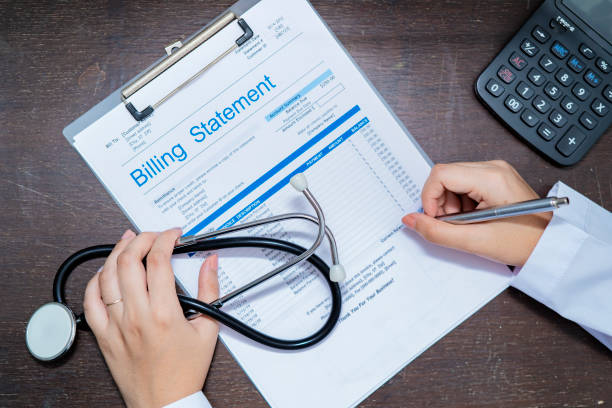According to recent statistics by York.co.uk, “The total costs of prescription medicines to the NHS in England reached £17.2 million in 2022.” Moreover, branded medicines’ costs have risen by 5% since 2018. Thus, as medical prices continue to soar, medical treatment, even a small can strain your budget.
Pending medical bills only add up to the existing debt, making it challenging to balance finances. If you are stuck with a whopping medical bill and seek immediate solutions to pay it off, the blog may help.
How to counter medical expenses without denting budget?
The best way to reduce the costs involved with medical charges is – negotiation. Discuss the bill and prescription with the doctor. Check whether he can provide the best affordable substitute for some medicines. Moreover, provide an expected estimate of what you can pay. If you lack insurance coverage, the bill may prove expensive. Do not worry, there are other ways to finance the medical costs:
1) Check the NHS scheme for help
People on the NHS Low-Income Scheme (LIS) or Universal Credit can benefit from this scheme.
The LIS covers prescription costs, eye care costs, dental costs and healthcare travel expenses. If entitled to receive benefits, your partner and any dependable children may also leverage it.
2) Hire a medical bill advocate
You incur a hefty hospital bill if you have a major surgery, organ replacement or a long-term hospital stay. Here, not having insurance can impact your finances.
Before taking any action, hire a medical bill advocate. He is an expert in analysing the bills and figuring out the best possible ways to reduce the amount to an extent. They may pick mistakes that a non-specialist may miss.
Having a profound knowledge of the medicinal field, medical procedures and industry rates, they provide an estimate of the costs that you should be charged. Moreover, you can also get help in price negotiation. However, you must pay around 30% of the amount you saved on the bills as a fee to the advocate.
You must know the advocate inside out before partnering with him for a cause. Cross-check or verify the identity of the person before shelling out any personal details or documents. Apart from that, check for additional fees.
3) Medical credit card
A medical credit card is another way to cover up healthcare payments. Different medical credit cards cover unique symptoms or treatments. For example, some cover surgery and in-hospital treatments, while others cover cosmetic surgeries. Therefore, before applying for a medical credit card, analyse whether it covers a particular situation.
You can apply for the card at the medical care office. Depending on the card’s validity, you can get up to 6- 21 months interest-free. Therefore, pay the dues within the timeframe while leveraging the interest-free period. It would help you avoid additional payments or penalties.
4) Check verified instalment loans
Unlike medical credit cards, you can use instalment loans for any symptoms, treatment or medical facility. You do not have to analyse and choose the right thing here. Simply check the best instalment loans by exploring the APR and interest rates. You can get one and pay the dues in fixed monthly instalments hassle-free. If you want to cover the loan costs flexibly and quickly, get 6 monthly instalment loans immediately.
You can use these to finance or bridge an amount without delay. To qualify, you must have a regular income source, a fair credit history and financial management proof. The best part is- that instalment loans are affordable to any medical credit card or other facilities.
5) Consolidate your debts
If you have a mountain of debts, consolidation may help. With this, you can take a loan to pay your bills. It would help you release some money and reduce your liabilities towards interest costs and repayments. You automatically pay less towards the loan/debts afterwards.
Moreover, it improves your credit score. It implies you may get personal loans for medical treatment at low interest rates and costs. It quickens the loan approval process and increases the chances of the same.
6) Set up a medical bill payment plan
Yes, you can negotiate a medical bill payment plan with the doctor or hospital for the medical bill. It is ideal for individuals who cannot pay the bill in one-off payments. Amid regular struggles to make up for living costs, clearing the dues in one go is impossible. Thus, you enter a payment agreement by setting up a medical bill payment plan.
In this, you assure the hospital or the medical facility to pay the dues in instalments until a few months to cover the payments. However, ask about the additional costs and fees associated with the plan. It would help you decide the right and comfortable arrangement for your finances.
Individuals with limited or low income may qualify for a no-interest payment plan. Just analyse the feasibility and request a written confirmation of the terms that your provider agrees to.
What happens if you do not pay medical bills?
If you do not pay the medical bills on time, your service provider’s medical billing department may turn your debt over to a debt collection agency. Eventually, it may impact the personal finances, mental peace and credit score.
Thus, check out the best possible ways to clear the dues quickly.
What if I do not qualify for the most because of a low credit score?
If the above tips do not help, analyse low credit score loans for help. These loans may help cover the medical costs despite poor credit history. You can use it to finance:
- Operation costs
- Hospital stay
- Lab reports and testing
- Paying the medical advisor
- Immediate medical consultation and treatment
- Specialist organ transplant services
It is easier to qualify for poor credit loans for people with bad credit history. Moreover, you can get affordable rates than other sources to finance the requirements.
Bottom line
Medical expenses often surprise one at the most unexpected time. Thus, knowing the best ways to finance expensive medical bills helps avoid panic. Well, you can benefit from the above-mentioned ways to pay the bills. An emergency fund may help.
You can check it to clear a part or finance the bill if you have. Alternatively, if you lack one, you can check your retirement plan. It is not advisable to tap it often as it reduces the returns you get. Tap it only if you have no other option to clear the bills.
Whatever mode you choose, ensure it does not impact the financial bottom line.
Hospitalisation is a dent in your finances. However, making the right money decisions helps prevent the impact.





